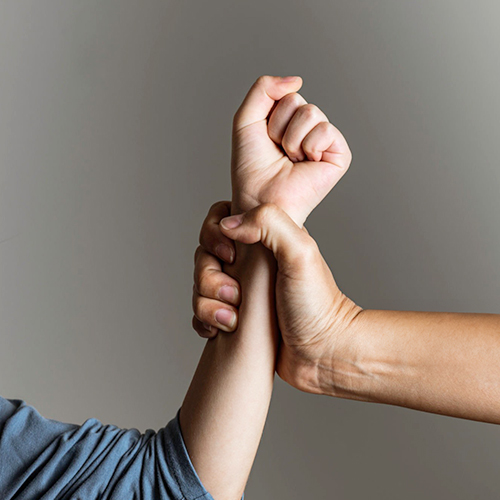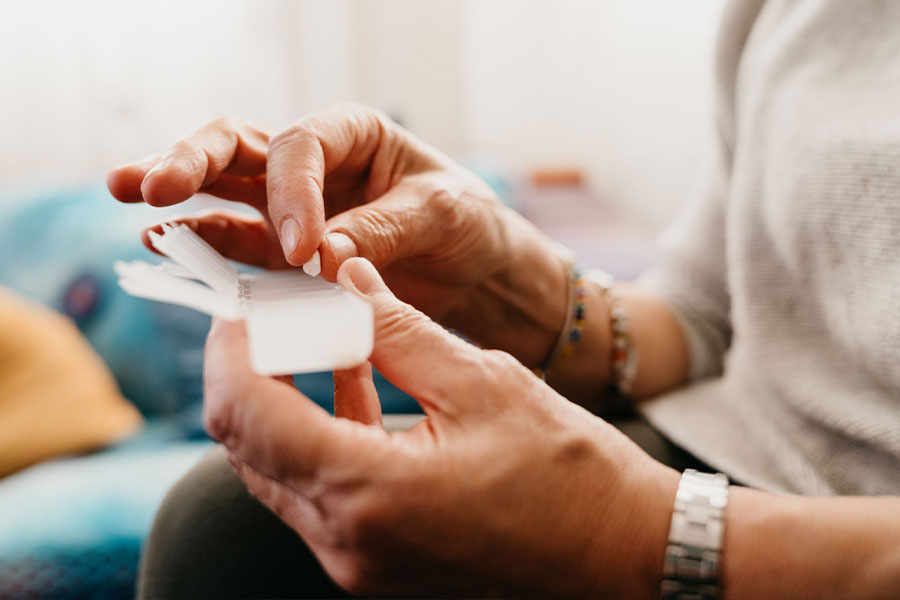
The causes of Impulse Control Disorder are complex and may involve a combination of genetic, biological, psychological, and environmental factors. These may include:

At Veda Rehab and Wellness, we understand the challenges individuals face when struggling with Impulse Control Disorder (ICD). Our dedicated team is here to provide compassionate care and evidence-based treatments to help you regain control over your impulses and lead a fulfilling life.
At Veda Rehabilitation and Wellness, we offer comprehensive treatment for individuals struggling with Impulse Control Disorder (ICD). Our holistic approach integrates evidence-based therapies, supportive interventions, and personalized treatment plans to address the underlying causes and symptoms of ICD.

Our experienced therapists utilize proven therapeutic modalities such as Cognitive Behavioral Therapy (CBT) and Dialectical Behavior Therapy (DBT) to help you understand and manage your impulses. Through individual and group sessions, you'll learn practical strategies to challenge negative thought patterns and develop healthier coping mechanisms.

Our board-certified consulting psychiatrists work closely with you to determine if medication is appropriate for managing your symptoms. We may prescribe medications such as Selective Serotonin Reuptake Inhibitors (SSRIs) or mood stabilizers to help regulate mood and reduce impulsivity, ensuring a comprehensive approach to your treatment.

In addition to individual therapy, we offer group therapy and family therapy sessions to provide a supportive environment where you can share experiences, receive feedback, and learn from others facing similar challenges. Family involvement is encouraged to improve communication and strengthen your support network.

Our psychoeducation programs provide valuable information about ICD, its causes, symptoms, and treatment options. You'll also participate in coping skills training sessions, where you'll learn practical strategies to manage impulses, stress, and triggers in your daily life.

We believe in treating the whole person, which is why we offer holistic approaches such as mindfulness practices and recreational therapy. Engaging in activities like meditation, yoga, or art therapy can promote relaxation, increase self-awareness, and provide healthy outlets for self-expression.

Our team will work with you to develop a personalized relapse prevention plan, equipping you with the tools and strategies needed to identify triggers, manage cravings, and prevent relapse into impulsive behaviors. We'll also help you establish a strong support network and connect you with community resources for ongoing support.

Your journey with us doesn't end when you leave our facility. We offer comprehensive aftercare services, including outpatient therapy, support groups, and regular follow-up appointments to ensure you continue to receive the support and guidance you need to maintain your progress and thrive.
At Veda Rehabilitation and Wellness, we offer a holistic and individualized approach to treating Impulse Control Disorder (ICD), focusing on helping individuals gain better control over their impulses and improve their overall quality of life. Our multidisciplinary team of professionals, including psychiatrists, psychologists, and therapists, collaborates to provide a comprehensive treatment plan tailored to each client’s unique needs.
Comprehensive Assessment and Personalized Treatment Plan
Our process begins with a thorough assessment to understand the specific nature and severity of the impulse control issues, the individual’s personal and medical history, and any co-occurring mental health conditions. This detailed evaluation is crucial in developing a personalized treatment plan that addresses the root causes and symptoms of ICD.
Evidence-Based Therapeutic Approaches
We employ a variety of evidence-based therapies to help clients manage their impulses effectively:
Skills Training and Behavioural Interventions
To equip clients with practical tools to manage their impulses, we offer:
Pharmacotherapy
For some individuals, medication may be a beneficial component of their treatment plan. Our psychiatrists carefully evaluate and prescribe medications that can help manage symptoms of ICD, such as mood stabilizers, antidepressants, or antipsychotics, depending on the specific needs of the client.
Integrative Wellness Therapies
We believe in a holistic approach to treatment, incorporating wellness therapies that support mental and physical health:
Supportive Environment and Aftercare
Our treatment environment is designed to be safe, supportive, and conducive to healing. Post-treatment, we offer robust aftercare programs to ensure ongoing support and prevent relapse. This includes continued therapy sessions, support groups, and access to resources that help clients maintain their progress and develop long-term coping strategies.
Continuous Monitoring and Adjustment
We continuously monitor each client’s progress and make necessary adjustments to their treatment plan to ensure its effectiveness. This dynamic approach ensures that our therapies remain responsive to the evolving needs of our clients.
At Veda Rehabilitation and Wellness, our goal is to empower individuals with Impulse Control Disorder to achieve lasting control over their impulses and lead fulfilling, balanced lives through compassionate, comprehensive, and individualized care.
The most effective treatments for impulse control disorders at Veda Rehabilitation and Wellness include:
Common medications prescribed for impulse control disorders include:
Common side effects of medications for impulse control disorders include:
SSRIs: Nausea, insomnia, sexual dysfunction.
Mood stabilizers: Weight gain, tremors.
Antipsychotics: Drowsiness, dizziness, weight gain.
Stimulants: Insomnia, increased heart rate.
It’s important to discuss potential side effects with a healthcare provider to manage them effectively.
Mindfulness helps individuals with impulse control disorders by:
Enhancing self-awareness: Recognizing triggers and impulsive behaviors.
Reducing stress: Promoting relaxation and emotional regulation.
Improving focus: Aiding in better decision-making.
At Veda Rehabilitation and Wellness, mindfulness practices such as meditation and deep-breathing exercises are integrated into treatment plans.
Group therapy offers numerous benefits, including:
Peer support: Sharing experiences with others facing similar challenges.
Learning opportunities: Gaining new coping strategies.
Reduced isolation: Feeling understood and connected.
Motivation: Encouraging adherence to treatment plans.
Veda Rehabilitation and Wellness provides group therapy sessions to foster a supportive community.